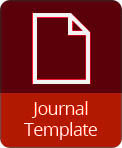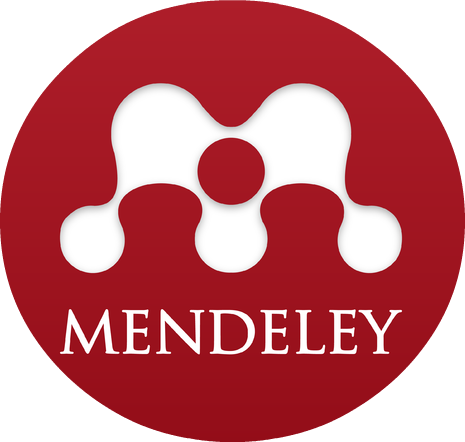The Influence of Inquiry Learning Model on Grade X Students Biology Learning Outcomes in Ecosystem Material
Abstract
The present study aims to: 1) interpret the influence of the inquiry learning model on students' biology learning outcomes; 2) interpret the implementation of each stage of the inquiry learning model. The present study is quantitative research using a quasi-experimental design, which was carried out at SMA Negeri 2 South Konawe. The research samples were grade X MIPA1 students as the experimental class and grade X MIPA3 students as the control class. The data collection technique for this research is tests that were analyzed descriptively and inferentially, as well as observations to interpret the implementation of the inquiry learning model. The results show that: 1) the inquiry learning model has a positive effect on the biology learning outcomes of grade X students on the ecosystem material. The inquiry learning model has an effective effect of 74.82% in learning activities and 25.18% is influenced by other variables which are not examined in this research, so the model is categorized as quite effective; 2) the inquiry learning model applied to grade X ecosystem material has difficulties in learning activities, namely difficulties in orienting the material and formulating problems. The biggest difficulty faced by the teacher is collecting data and drawing conclusions, which is caused by the teacher’s lack of ability to organize the learning time.
Keywords
Full Text:
PDFReferences
Abraham, I., & Supriyati, Y. (2022). Desain Kuasi Eksperimen Dalam Pendidikan: Literatur Review. Jurnal Ilmiah Mandala Education, 8(3), 2476–2482. https://doi.org/10.58258/jime.v8i3.3800
Acar, O. A., & Tuncdogan, A. (2018). Using the inquiry-based learning approach to enhance student innovativeness: a conceptual model. Teaching in Higher Education, 24(7), 895–909. https://doi.org/https://doi.org/10.1080/13562517.2018.1516636
Campbell, N. A., & Reece, J. B. (2008). Biology (7th ed.). Benjamin Cummings.
Edlund, A. F., & Balgopal, M. M. (2021). Drawing-to-Learn: Active and Culturally Relevant Pedagogy for Biology. Frontiers in Communication, 6(October), 1–8. https://doi.org/10.3389/fcomm.2021.739813
Hidayati, N., Widoretno, S., & Nurmiyati. (2017). Penerapan Instruksi pada Tahap Orientasi Pembelajaran Guided Inqury untuk Meningkatkan Kemampuan Menemukan dan Menghubungkan Konsep Implementation Instruction of Orientation Stage in Guided Inquiry Learning to Improve Ability for Discovering and Relating. Prosiding Konferensi Pendidikan Biologi: Biologi, Sains, Lingkungan, Dan Pembelajaran, 14(1), 386–390.
Indrawan, A., Asrori, & Rusman. (2023). Implementasi Pembelajaran Konstruktivisme Dengan Strategi Generatif Learning Terhadap Peningkatan Motivasi Belajar Siswa pada Mata Pelajaran Pendidikan Agama Islam di SMA Muhammadiyah 09 Surabaya. Jurnal Hikmah: Jurnal Pendidikan Islam, 12(1), 240–256. https://doi.org/1055403
Juliani, N. W. E. (2020). Penerapan Model Pembelajaran Inkuiri Biologi Terhadap Peningaktan Hasil Belajar Siswa Kelas X Pada Sub Pokok Pencemaran Lingkungan. SINAU : Jurnal Ilmu Pendidikan Dan Humaniora, 7(1), 89–105. https://doi.org/10.37842/sinau.v7i1.26
Kersting, M., Karlsen, S., Ødegaard, M., Olufsen, M., Kjærnsli, M., & Suhr Lunde, M. L. (2023). Studying the quality of inquiry-based teaching in science classrooms. A systematic video study of inquiry-based science teaching in primary and lower-secondary schools. International Journal of Science Education, 45(17), 1463–1484. https://doi.org/10.1080/09500693.2023.2213386
Lasaiba, I. (2023). Menggugah Kesadaran Ekologis: Pendekatan Biologi untuk Pendidikan Berkelanjutan. Jendela Pengetahuan, 16(2), 143–163.
Lepiyanto, A. (2014). Analisis Keterampilan Proses Sains Pada Pembelajaran Berbasis Praktikum. BIOEDUKASI (Jurnal Pendidikan Biologi), 5(2), 156–161. https://doi.org/10.24127/bioedukasi.v5i2.795
Mason, K. A., Losos, J. B., Johnson, G. B., Raven, P. H., & Singer, S. R. (2014). Biology (10th, Berilu ed.). McGraw-Hill.
Melisa, P., Nursamsu, & Setyoko. (2024). Pengaruh Model Pembelajaran Project Based Learning (PjBL) Materi Plantae Terhadap Hasil Belajar Siswa di SMA Negeri 1 Langsa. Journal of Student Research, 2(2), 202–209. https://doi.org/10.55606/jsr.v2i2.2851
Ochoma, M. U. (2020). Curriculum Content and the Issue of Relevance in the 21st Century Classroom. International Journal on Integrated Education, 3(9), 158–164. https://doi.org/10.31149/ijie.v3i9.611
Prasetiyo, M. B., & Rosy, B. (2020). Model Pembelajaran Inkuiri Sebagai Strategi Mengembangkan Kemampuan Berpikir Kritis Siswa. Jurnal Pendidikan Administrasi Perkantoran (JPAP), 9(1), 109–120. https://doi.org/10.26740/jpap.v9n1.p109-120
Rahmasiwi, A., Santosari, S., & Sari, D. P. (2015). Peningkatan Keterampilan Proses Sains Siswa dalam Pembelajaran Biologi Melalui Penerapan Model Pembelajaran Inkuiri di Kelas XI MIA 9 (ICT) SMA Negeri 1 Karanganyar Tahun Pelajaran 2014/2015. Seminar Nasional XII Pendidikan Biologi FKIP UNS 2015: Biologi, Sains, Lingkungan, Dan Pembelajarannya, 9(2013), 428–433.
Sa’diyah, H., & Aini, S. (2022). Model Pembelajaran Inkuiri Pada Perkembangan Berfikir Kritis Siswa : Literature Review. Journal of Professional Elementary Education, 1(1), 73–80. https://doi.org/10.46306/jpee.v1i1.8
Sanjani, M. Ak. (2019). Pelaksanaan Strategi Pembelajaran Inkuiri. Serunai Administrasi Pendidikan, 8(2), 40–45.
Sanjaya, W. (2016). Strategi pembelajaran berorientasi standar proses pendidikan (1st ed.). Prenadamedia.
Schwab, K. (2019). Revolusi Industri Keempat (A. Taringan (ed.)). PT Gramedia Pustaka Utama; ©2016 World Economic Forum.
Torday, J. S., & Baluška, F. (2019). Why control an experiment? EMBO Reports, 20(10), 2–5. https://doi.org/10.15252/embr.201949110
Ülger, B. B., & Çepnı, S. (2020). Evaluating the Effect of Differentiated Inquiry-Based Science Lesson Modules on Gifted Students’ Scientific Process Skills. Pegem Egitim ve Ogretim Dergisi, 10(4), 1289–1324. https://doi.org/10.14527/pegegog.2020.039
DOI: http://dx.doi.org/10.31332/kd.v5i1.8652
Refbacks
- There are currently no refbacks.
Copyright (c) 2024 candra ardan fadila, Nourma Yulita, Syarif Rizalia

This work is licensed under a Creative Commons Attribution-ShareAlike 4.0 International License.
Kulidawa indexed by:

Jurnal Kulidawa under by Creative Commons Attribution-ShareAlike 4.0 International License.


2.png)






